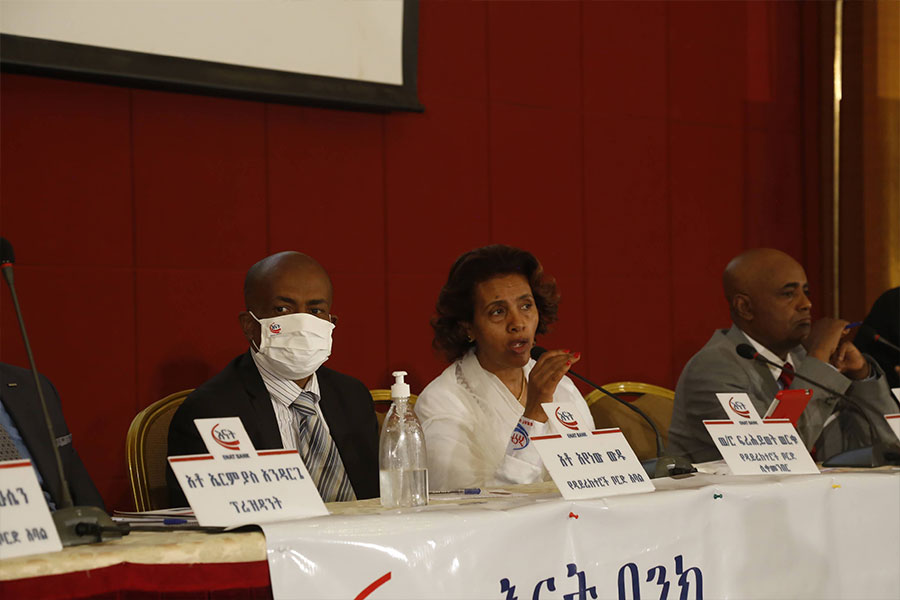
Fortune News | Jan 22,2022
Nov 2 , 2019
By ELIAS TEGEGNE ( FORTUNE STAFF WRITER )
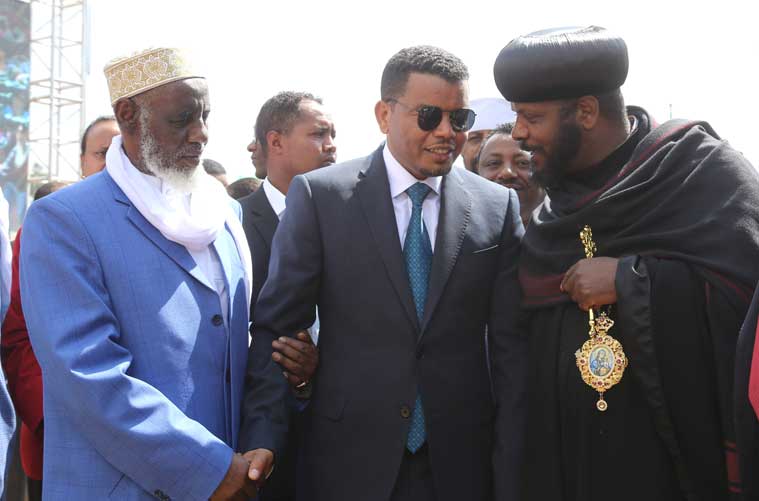 Takele Uma, deputy mayor of Addis Abeba City Administration, greets two religious officials, inaugurated the construction of 20,504 condominium units on November 2, 2019.
Takele Uma, deputy mayor of Addis Abeba City Administration, greets two religious officials, inaugurated the construction of 20,504 condominium units on November 2, 2019. Signaling a policy change by the Addis Abeba City Administration, Deputy Mayor Takele Uma inaugurated condominium projects that will be built in centre city. The projects are expected to cost the government 56 billion Br and be completed in two years time.
The 20,504 condominium units will be built in the nine districts of the city and will occupy 69ha of land. Creating over 52,000 job opportunities, the projects will include 174 blocks of condominiums, each of which will have a separate contractor.
The event was inaugurated in Leghar, in the Qirqos district, that will get 10 condominium blocks that will accommodate 1,680 houses. The event was held on a plot of land earmarked for the condominium blocks after houses that used to stand there were grazed.
“From the experiences of the previous projects, we have learned that it is important to settle the residents around the same areas so as not to disrupt their social lives,” said Takele.
Kassanesh Anlew, who was born in Qirqos District, attended the meeting.
Deputy mayor of Addis Abeba City Administration inaugurated the construction of 20,504 condominium units on November 2, 2019.
“I can’t wait to see the apartments built in Qirkos,” she said. “However, the district has to consider those who do not own homes but have been living in rental houses for the past decade.”
Kassanesh and people like her, who were born in the district but do not have their own homes, are concerned that the programme might not consider them.
Another one of the housing projects will be in Bole District on a plot of land located next to the Addis Abeba Bole International Airport. The City Administration plans to build 28 condominium blocks in the area. The plot of land that has now been cleared was also a site for the Green Legacy campaign on July 29, 2019, where seedlings were planted.
"When I planted the seedlings, I was happy to make my "green legacy," but now all the seeds are destroyed," said Wondesen Ali, who washes cars in a space around the area. He nonetheless appreciates the City Administration's efforts to meet the housing demand.
The City Administration has a plan to build 500,000 additional homes for the residents of the capital in the near future. Out of these, 150,000 will be built by the City Administration and the rest will be built by either private players or under public-private partnerships.
Unlike in previous times, the city will not involve itself in the construction once contractors are hired. The procurement of construction materials such as cement and metal bars will be handled by the contractors themselves. This was to combat wrongdoing and waste that used to be committed when the City Administration itself used to procure construction materials for contractors to use in projects.
Housing projects in Ethiopia have involved more than 12,000 small and micro-enterprises, over 2,000 contractors and have created more than a million jobs in the last 13 years. Nonetheless, of the 835,000 people who registered for condominiums since 2005, only around 176,000 have received houses thus far.
In the last fiscal year, the City Administration identified over 51,000 winners of housing units under its middle and lower-middle income housing schemes. But the announcement of the condominiums was not without controversy. It led to protests across the Oromia Regional State, given the politically sensitive location of some of the condominium blocks.
The displacement of farmers as a result of condominium projects has also been a source of controversy for some time.
Berhanu Weldtensae (PhD), assistant professor at the Ethiopian Institute of Architecture, Building Construction & City Development, believes that constructing the project in city centres has a positive impact.
“Building the house in the middle of town will minimise the number of displaced farmers,” he said.
Abebe Dinku (Prof), professor of civil engineering and chair of construction materials & management at Addis Abeba University, agrees.
“But the condominium project should also consider and be suitable for people with disabilities and the elderly,” he said. “The building should also consist of parking, green areas and children’s playgrounds.”
PUBLISHED ON
Nov 02,2019 [ VOL
20 , NO
1018]

Fortune News | Jan 22,2022

Fortune News | Jul 30,2022
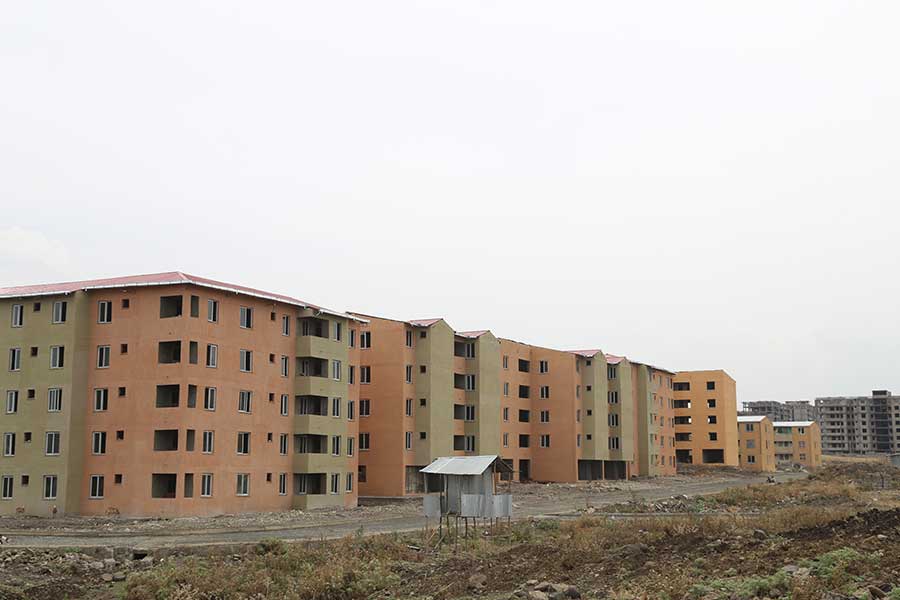
Fortune News | Sep 06,2020
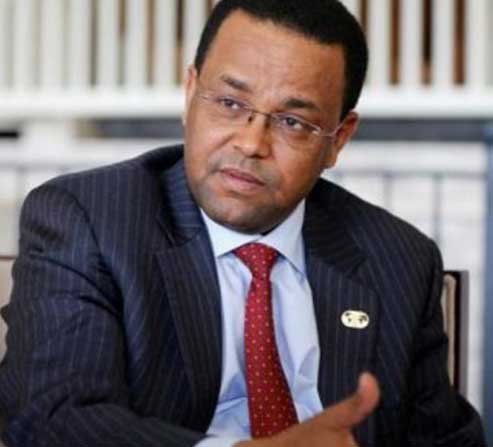
Fortune News | Apr 17,2021

Radar | Oct 23,2018

Viewpoints | Apr 20,2024
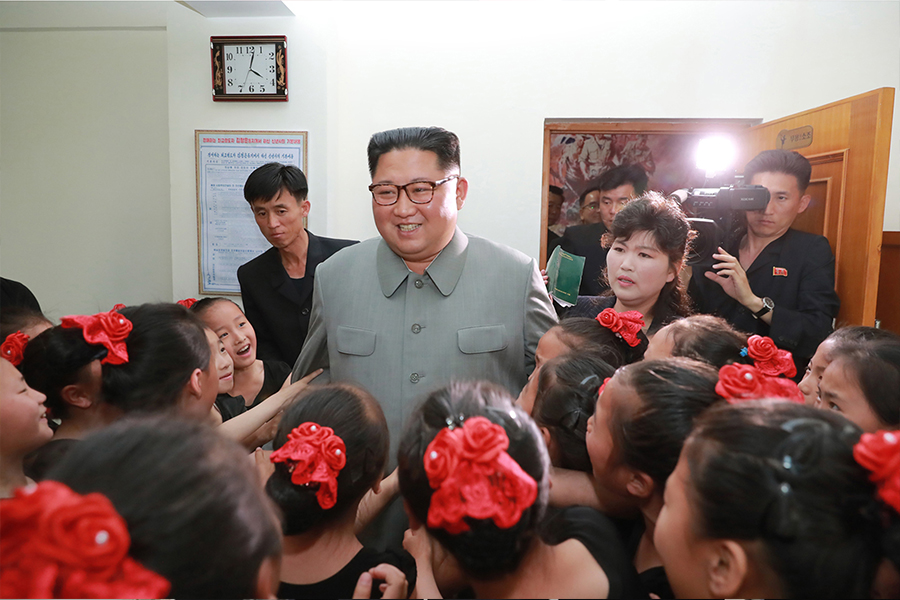
Advertorials | Jan 02,2020

Fortune News | Sep 30,2023
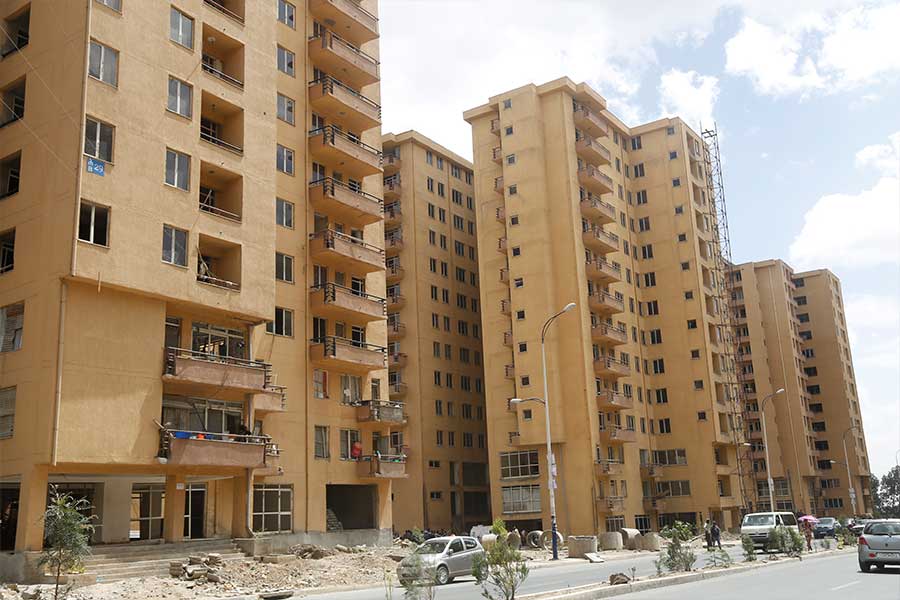
Fortune News | Apr 16,2022
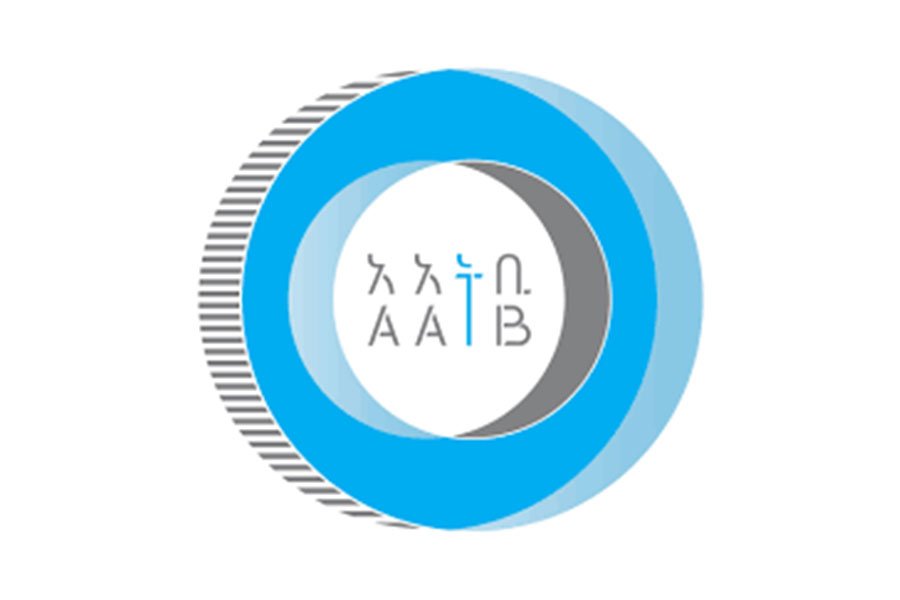
Radar | Dec 19,2021

Dec 22 , 2024 . By TIZITA SHEWAFERAW
Charged with transforming colossal state-owned enterprises into modern and competitiv...

Aug 18 , 2024 . By AKSAH ITALO
Although predictable Yonas Zerihun's job in the ride-hailing service is not immune to...

Jul 28 , 2024 . By TIZITA SHEWAFERAW
Unhabitual, perhaps too many, Samuel Gebreyohannes, 38, used to occasionally enjoy a couple of beers at breakfast. However, he recently swit...

Jul 13 , 2024 . By AKSAH ITALO
Investors who rely on tractors, trucks, and field vehicles for commuting, transporting commodities, and f...

Nov 1 , 2025
The National Bank of Ethiopia (NBE) issued a statement two weeks ago that appeared to...

Oct 25 , 2025
The regulatory machinery is on overdrive. In only two years, no fewer than 35 new pro...

Oct 18 , 2025
The political establishment, notably the ruling party and its top brass, has become p...

Oct 11 , 2025
Ladislas Farago, a roving Associated Press (AP) correspondent, arrived in Ethiopia in...